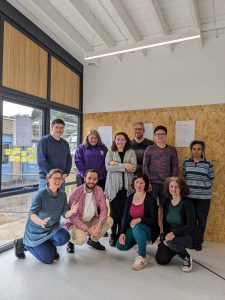We are delighted to share that Minty and Miriam have recently published their work “Remaking Lost Communities in Virtual Cultural Landscapes“ at the Digital Heritage Congress 2025 (Siena, Italy). Thanks to the School of Computer Science for funding the presentation.
This work highlights SACHI’s ongoing efforts to explore the intersections of human-centred computing and contribute to the broader conversation in computer-assisted education and the heritage sector. Below is the paper abstract:
Characters in immersive, Virtual Reality environments have the potential to enrich the user experience, improving engagement with heritage, and in doing so, benefiting heritage organisations and their communities. By creating authentic digital scenes based upon archaeological and historical data, we enable these communities and their visitors to better understand the past. Often, historical reconstructions can appear empty, focused on the landscape and architecture, yet omitting animals, people and associated intangible heritage. We demonstrate the potential of enriching these reconstructions with the details of lives past.
Zhang, J., Sturdee, M., Miller, A. H. D., Oliver, I. A., & Aitken, J. (2025, June). Remaking lost communities in Virtual Cultural Landscapes. In Digital Heritage Conference.




